Text and photos by Manuel Ortiz Escámez, with information by Duván Caro
Footer ? Peninsula 360 Press
Mayelis Angarita Robles has been the target of three assassination attempts due to her work as a human rights and territorial leader in Montes de María, in the Colombian Caribbean.
The Montes de María sub-region, which we traveled through for two days with Angarita (June 18 and 19), is a mountainous corridor between the departments of Sucre and Bolívar, bordered on the east by the Magdalena River and on the west by the Gulf of Morrosquillo in the Caribbean Sea.
The area is a majestic habitat defended by community leaders who, despite death threats, attacks and enormous material limitations, work tirelessly to improve the difficult living conditions of the Afro-farmer and indigenous peoples of the area, who are the seedbed of internationally recognized singers, craftswomen of the highest level and extraordinary musicians.
However, the rural Colombian Caribbean is also characterized as a territory of displaced people, forgotten by the State, plundered by agro-industrial corporations, and violated by armed groups linked to drug trafficking, extortion, human trafficking and hired assassination.
Although Angarita has been singled out as a military target by paramilitaries in this region, she and other leaders here played an important role in citizen participation and oversight of the historic June 19 elections that gave victory to Gustavo Petro and Francia Márquez.
Angarita, who is the founder of Narrar para Vivir, a network of 800 women artisans who are victims of the armed conflict in Montes de María, says that they had to organize themselves very well in these elections, independently training ?electoral witnesses because in the area there is almost always the issue of vote buying, precisely because of the issue of poverty. There are also many isolated areas and sometimes, every four years, people come to sell their vote for the opportunity to have something?
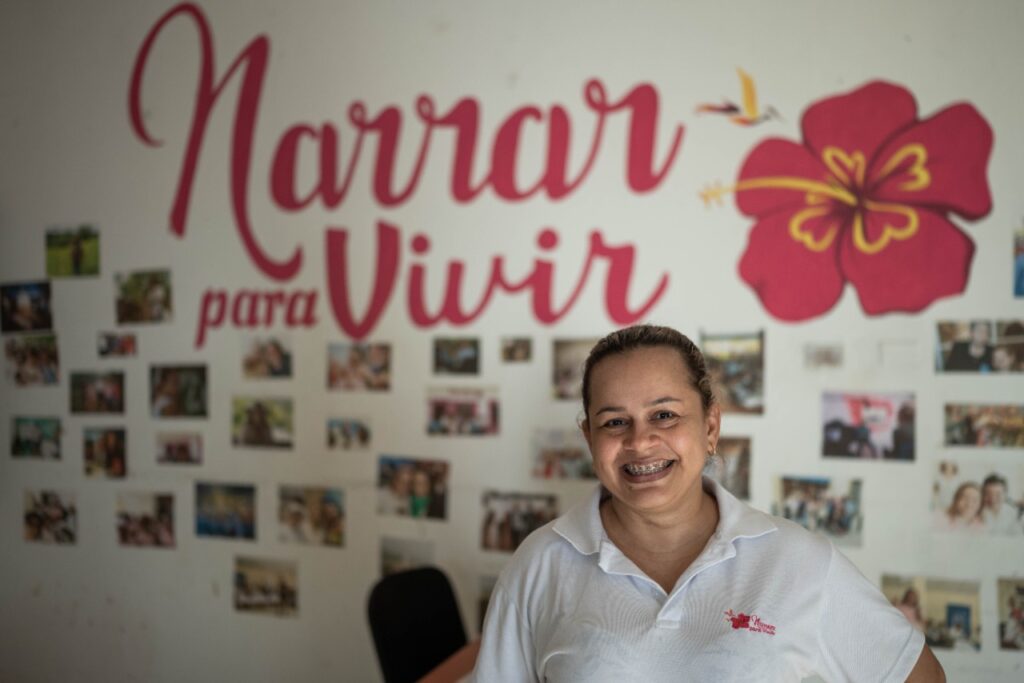
Maestro Javier Sarabia Pedroza, director of the Danza Son de Negro de San Cayetano, in coordination with Angarita, is another of the leaders who took care of the vote through the "electoral witnesses".
We watched that the elections were carried out calmly and without alterations," said Sarabia, who defined this electoral process as "the elections of hope for us as an Afro group. We are seeing policies that for a long time have not taken us into account, they have not dealt in depth with what we Afro groups need and deserve".
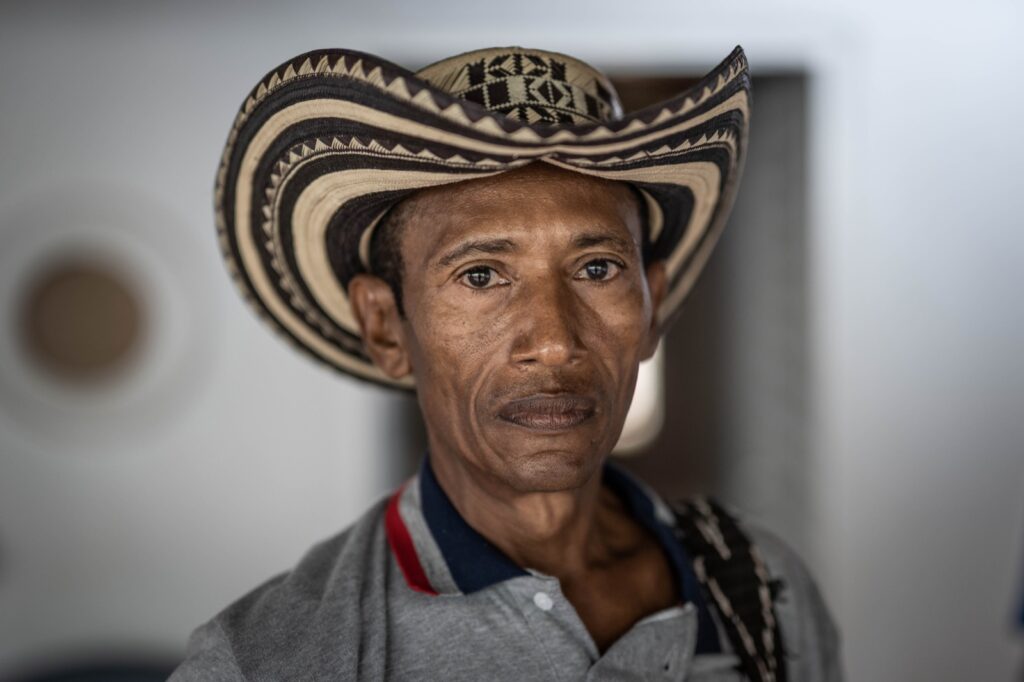
Floods
The lands surrounding the small town of Nervití, located three hours from the municipal capital of El Guamo, are large, wet and muddy plains bathed by the Magdalena River, which allows the formation of small ponds where the villagers grow modest corn crops, which are easily lost due to heavy rains.
The landscape is lush, dreamlike. There are lots of elegant white herons perched like sentinel angels on the sandbanks. Majestic eagles glide in circles, while the song of a myriad of colorful birds mingles with the warm air, and children chatter happily in the water while their father watches over them.
But the road from El Guamo to Nervití, like most of the roads in Montes de María, is dirt and in very bad condition, in addition to the fact that with the winter rains many stretches have been flooded. These conditions, explained the leader of the zone Gabriel Carmona, leave many towns, such as Nervití, completely isolated and incommunicado, and this diminishes the ability of our inhabitants, peasants, to vote?
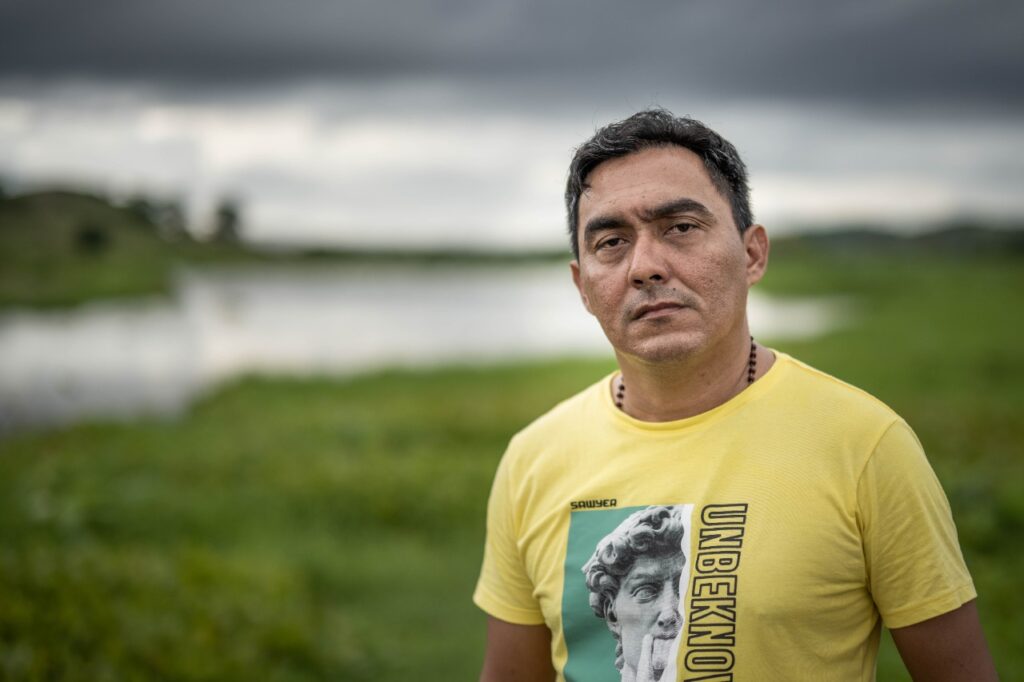
A farmer who travels by mule to go to vote, and who prefers to hide his name, passes through a flooded road and the water reaches up to half of the animal's body. The man says that it is two hours each way, but that it is worth it because "we want and need a change in Colombia, we want the new president to commit himself to us and support us, because as you can see, the roads are very bad, the people who have motorcycles do not dare to pass through here, that is why many people do not go out?
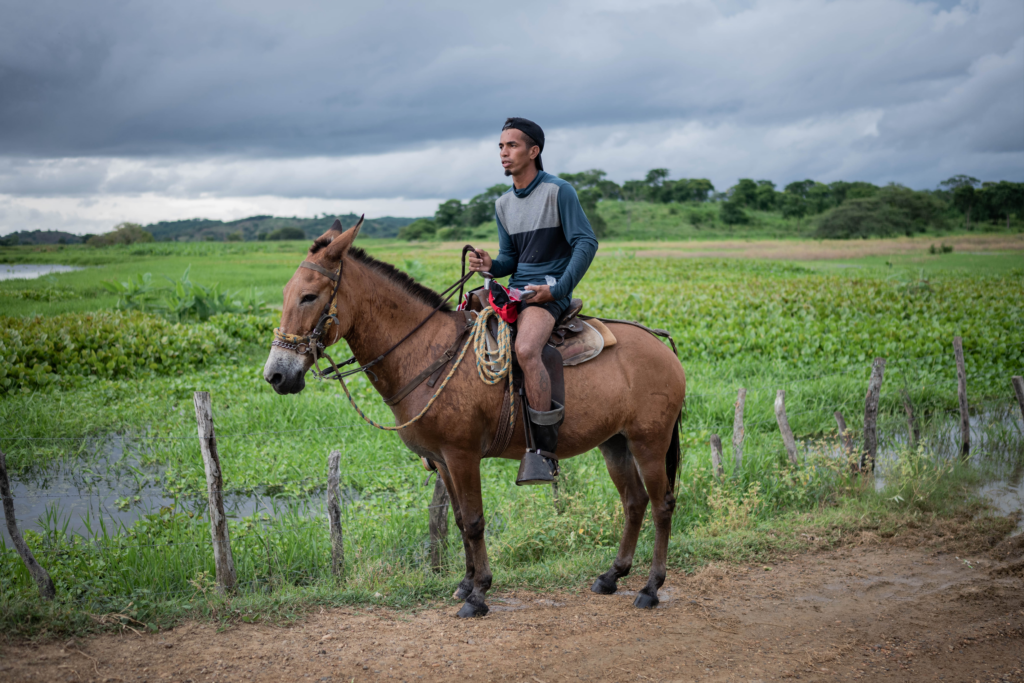
In Nervití there is a clinic in disuse because there are no doctors. The town is currently experiencing flooding that began four months ago due to the overflowing of one of the ciénegas. The villagers have observed a radical change in the behavior of the rivers over the last five years, which could be due to climate change.
In addition to heavy flooding that damages homes and roads, this radical climatic transformation has generated a shortage of fish, which is extremely serious in a town that bases its livelihood on fishing.
Here we live from fishing, but now fishing is not working because the river is swollen," said Martín Antonio de la Rosa Chamorro, a fishermen leader from Nervití, who does not rule out that these affectations are related to climate change ?because now the sun burns much more than before?
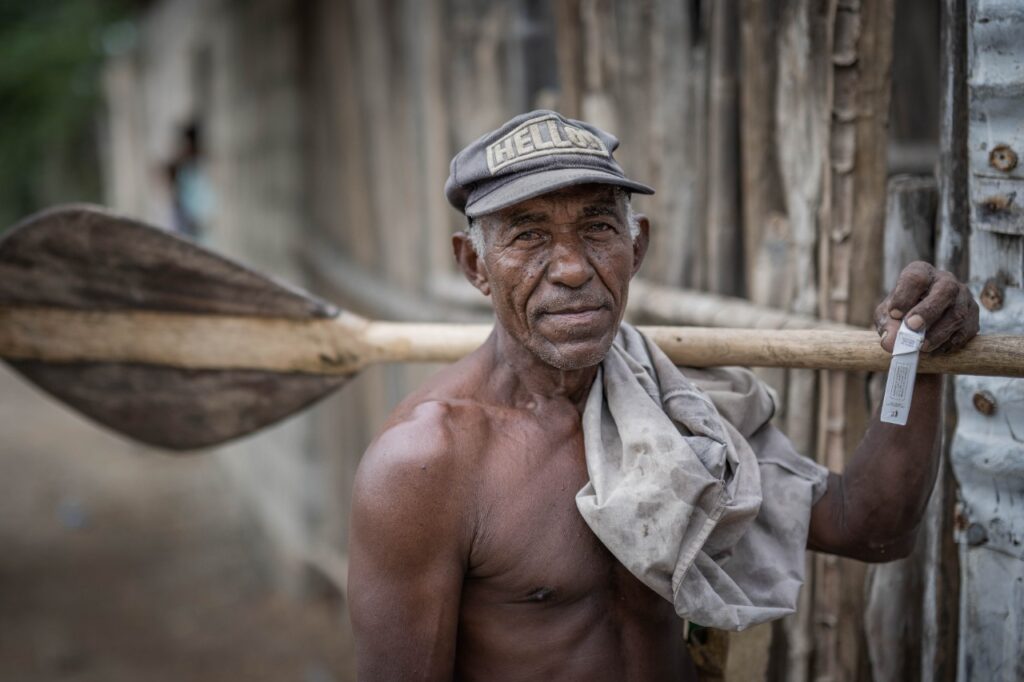
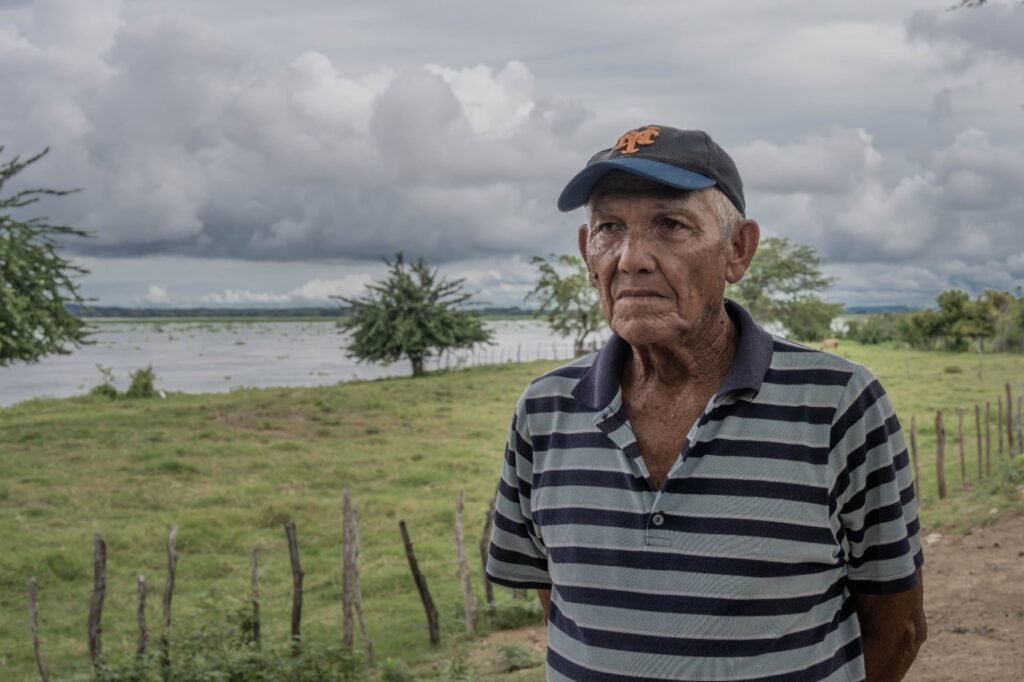
Since there are no fish, explains de la Rosa, the poverty that was already a characteristic of the place has worsened. About ten families have had to leave this year? sometimes we have nothing to eat?
What do you expect from the new government in Colombia?
The new president should look at these towns, they have abandoned us, the streets are useless, the town is all deteriorated by the floods".
In many villages of Montes de María there is no internet or cell phone signal. Nor do the media reach them. For this reason, the inhabitants of the town of Robles, Bolívar, created Radio Bemba, which consists of a loudspeaker placed on top of a pole in the house of Omar Ramón Villegas de León.
Attention Robles, very good morning! This is Omar speaking from this beautiful community radio station in Robles, Radio Bemba, which is yours. Please be advised that where Mr. Antonio has fresh pork? and where Mr. Manuel Segura buys his basic food basket?
In addition to reporting on domestic issues, ranging from food sales to organizing to deal with the ravages of the floods, Radio Bemba served to "raise community awareness of the importance of voting" in the presidential election, Mr. Villegas proudly recounted.
I am not a radio professional, I simply saw the need for communication that we have in the village and decided to install my speakers and microphones, and thus Radio Bemba was born. But we are very limited, we would like to be able to install more loudspeakers or even an antenna to make other types of transmissions, to reach other towns as well," Villegas yearns aloud.
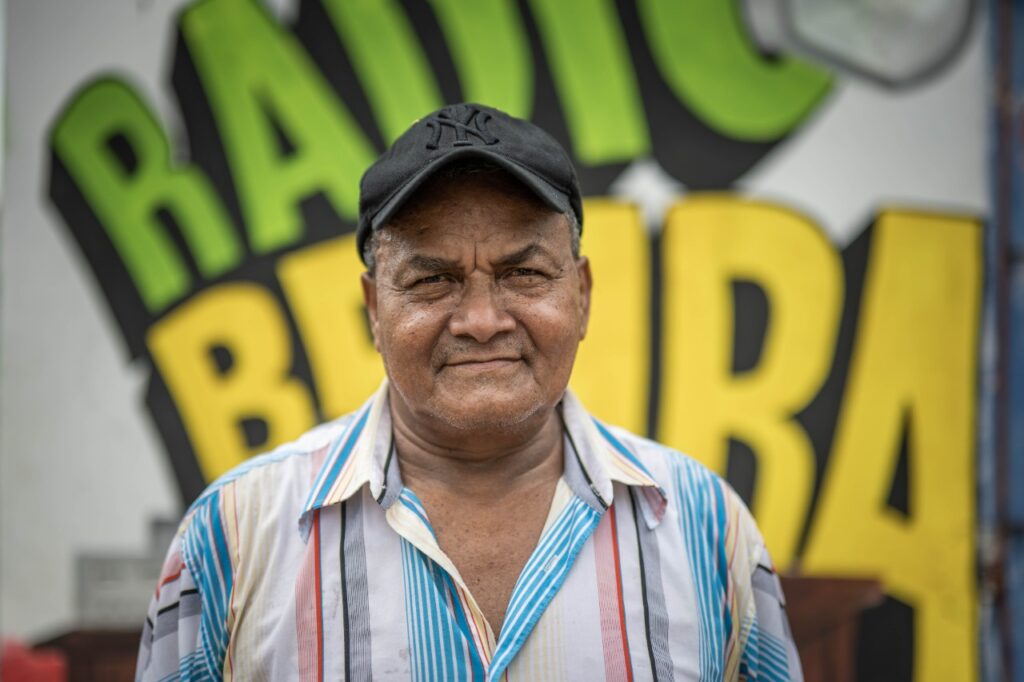
Violence and paramilitarism
The craftswomen who are part of Narrating for Living They weave hammocks, backpacks, hats and other typical articles that they sell to obtain some income. However, according to Surlay Sequea, legal representative of this organization, the armed groups in the area have recently approached them to extort money from them.
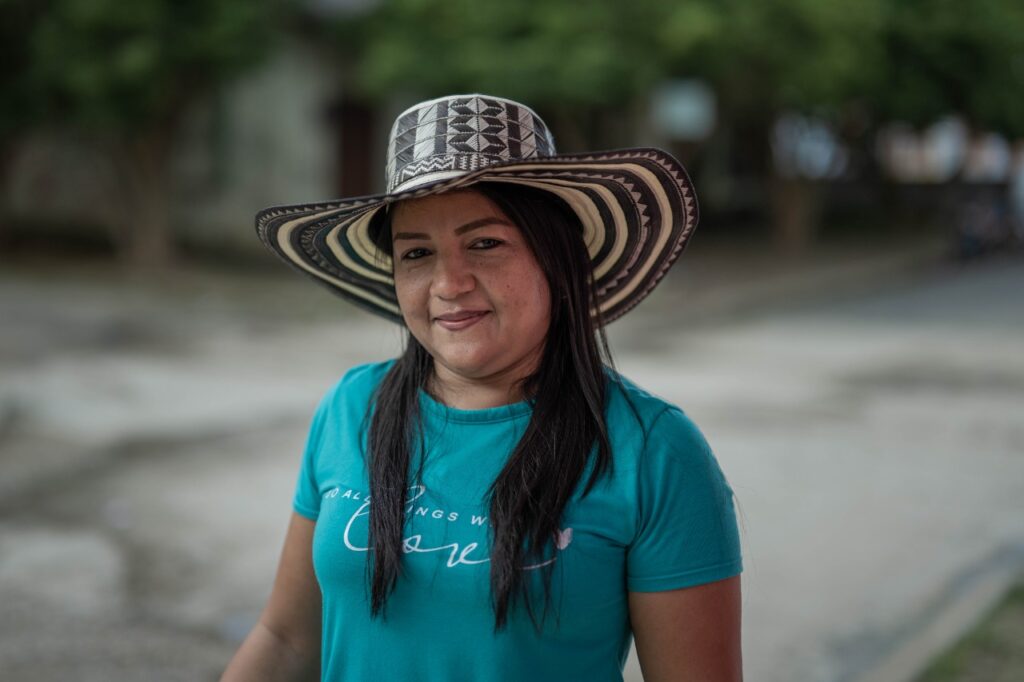
In addition to the floods and material poverty, what could be the main problem in Montes de María is the historical violence in the region, intensified by a recent configuration and strengthening of illegal groups, such as the Autodefensas Gaitanistas de Colombia (AGC) and the presence of the Sinaloa cartel (from Mexico), which maintain political and social control of the area.
In Montes de María we are living a very difficult situation of violence. We have been going through many threats. I have been displaced since last month, I left my house for an event and I could not return because they threatened me and gave me the order that I could not be in my municipality," said Sequea.
Paramilitary actions against the population worsened with the armed strike decreed last May, which forced the confinement for four days of the inhabitants of 11 departments and 135 municipalities in Montes de María. Those who did not comply with the strike, especially small traders, were executed.
In the municipality of María la Baja, commented human rights leader Elsi Quintana, "the people are frightened because in the afternoon and at night we are seeing strange cars, strange people driving around on motorcycles, we don't know who they are. It is difficult to live with so much fear?
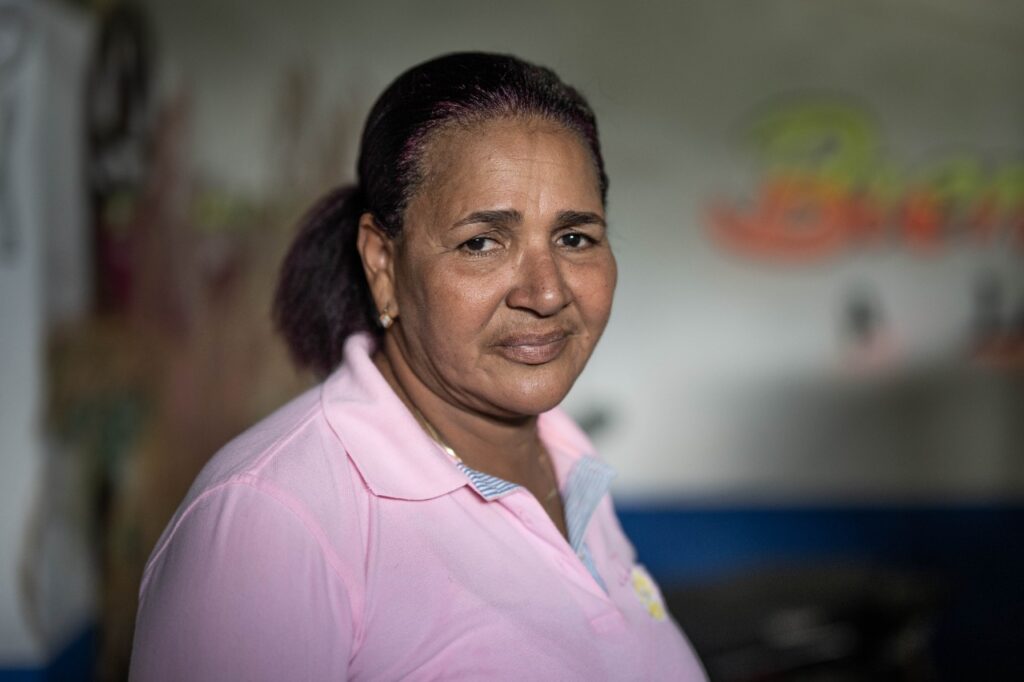
They say that we have projects and manage productive initiatives, and that is why we have to give them vacuna [a fee]. This prevents us from continuing to work as we used to, we are afraid," Sequea acknowledges.
Montes de María has a history of 157 massacres and more than 4,172 homicides, you can imagine what it is for us to work for democracy today in a context where nationally and internationally Monte de María is seen as a territory of reconciliation, of peace. And yes we are, there are very angry people here, I think we are too angry to remain here in a territory, when the price of working for peace is your life," said Angarita, who as a result of her attacks now moves around the territory escorted by two armed men as part of a protection program for threatened leaders in Colombia.
At the entrance to several villages in Montes de María there is AGC graffiti with the name of the boss in the area. The presence of these groups, according to several testimonies for this journalistic work, has triggered femicides, executions, forced disappearances and is provoking a new wave of displacement.
Days before the second round of the presidential elections, fishermen and peasants in some towns were ordered "not to go out to work or to vote". In spite of everything, thousands in the region went to the polls that gave the victory to the left for the first time in the history of Colombia. With this news, broadcasted on television, closed the day a family who voted for the Coalición Pacto Histórico in the town of San Juan Nepomuceno.
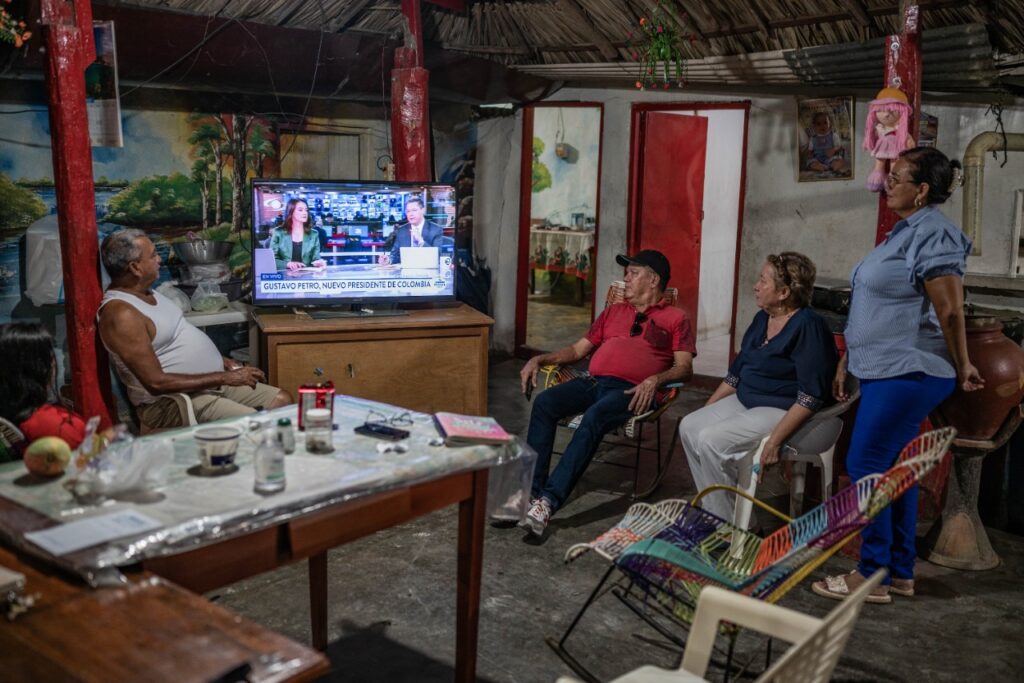
This work was carried out with the support of Global Exchangein collaboration with Peninsula 360 Press.
You may be interested in: Peace and social justice, Petro's pillars for his next government as head of Colombia

